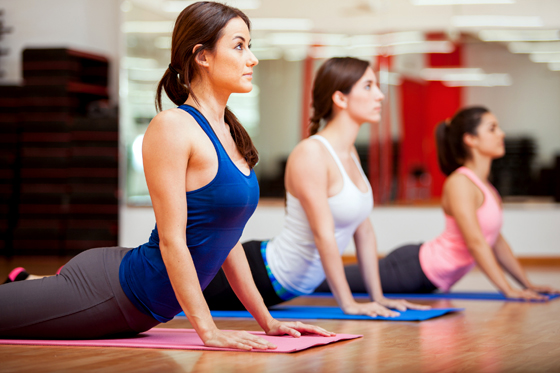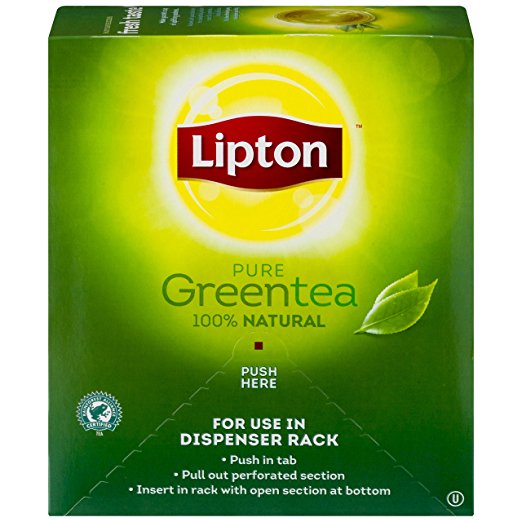Yoga for Beginners
Since ancient times, Yoga has been practiced for its many physical and mental benefits. The advantages of utilizing Yoga in your life have been studied and perfected for many years and it can work for you, whether young or old – ill or in good health.
If you’re thinking of practicing Yoga, it might help to understand its roots. The practice is said to be as old as civilizations itself, but written history classifies it into four periods of time – the Vedic, Pre-Classical, Classical and Post Classical.
Yoga’s rich tradition of healing can be traced back to stone seals dated around 3000 B.C., but scholars believe that Yoga was around even during the Stone Age period when Shamanism was practiced.
Shamans were medical healers and strived to improve the health of humans during a time when there were no educated doctors and when the community’s survival depended upon a disease-free existence.
Our Western doctors of today are constantly revealing other health benefits of Yoga and recommend it as a way to relieve symptoms of many illnesses such as heart disease, arthritis, AIDS and obesity.
Today, many are turning to Hatha Yoga as a way to prevent damage that aging can cause. Today, we are just learning about the benefits that practicing Yoga can bring to a society plagued by diseases and ill health.
Yoga for Health
People often turn to Yoga for the preventative and therapeutic benefits it offers. The body and mind can be renewed by the stretching and deep breathing involved without having to risk injuries or to exacerbate an existing illness.
Here are a few of the incredible benefits that Yoga offers:
- Improve Flexibility – A misconception that people have about Yoga is that you have to be flexible to practice it. That’s not true – your muscles and joints will improve by leaps and bounds when you practice Yoga for health.
You may have certain areas of the body that you’d like to be more flexible, and there are certain poses that address and body area you have in mind. If you’re in a job where you sit too much or where certain muscles become taut, Yoga can target those groups of muscles and stretch them out.
- Build Muscles – If you think that only weight training can build muscles, you’re wrong. Yoga can help strengthen and build muscles by positioning your body in positions that make you support your muscles.
Rodney Yee, renowned Yoga expert and trainer says, “People always ask me, ‘Don’t you life weights?’ and I say, ‘Yes, I lift my on body weight!” Yoga sculpts your muscles without trying. The toning and strengthening is a natural outcome of practicing Yoga.
- Ease Back Pain – Dealing with back pain can be excruciating and incapacitating. The exercises of Yoga can help in a natural way and give you the relief you need. Many of us sit most of the day, which weakens the back and opens it up to injuries.
Restorative Yoga poses can counteract the damage that a sedentary life brings and make a big difference in the quality of your life. Beginner Yoga poses that are great to relieve back pain are Cat/Cow, Downward Dog and Spinal Twist.
- Muscular/Skeletal Restoration – The muscle and skeletal system of our bodies work in unison so that we can move easily and function properly. Some muscles work without practice, such as blinking our eyes, while others require exercising to work properly.
The simple, but restorative stretching exercises and poses of Yoga help the muscular/skeletal system receive the oxygen and nutrients they need by helping the blood flow. Practicing Yoga keeps us moving fluidly and gracefully.
- Strengthen Spine – To maintain proper spine alignment you need to have flexibility and balance. Yoga can help the spine by helping develop the flexibility and balance you need to keep the spine straight and to strengthen it.
If your spine isn’t aligned properly, you could suffer from back pain and lack of motion. A few Yoga stretches such as Seated Twist and the Bridge Pose will help to keep your spine aligned properly and to improve your range of motion.
- Digestion and Elimination – Two important elements that can make or break your immune system, proper digestion and elimination, can be improved by practicing Yoga on a regular basis.
Many Yoga poses are perfect to relieve cramping and bloating and to stimulate the intestinal tract that leads to better elimination. Yoga poses such as Cobra and the Bent Elbow Spinal Twist can also increase the blood flow to your intestinal tract, calming the system and helping it operate more efficiently.
- Boosts Immune System – Priming your immune system for better health is important to fend off colds and flu and other, more serious diseases. Yoga can boost your immune system by increasing circulation of the lymph – a clear fluid that helps to eliminate bacteria and viruses.
Yoga poses such as the Balasana (Child’s Pose) and Downward-Facing Dog can greatly benefit the immune system and are easy to learn.
All of the physical benefits of practicing Yoga have yet to be determined, but studies have concluded that every aspect of your health and body can be improved by practicing the art of Yoga on a regular basis.
The above poses and much more about the benefits of Yoga for your health and well being can be found online or in books and videos.
Mental Benefits of Yoga
Besides the obvious health benefits of Yoga, the poses, meditation, deep-breathing and stretching can also help your mental well-being. Increased body awareness, relief of chronic stress and relaxation are just a few of the benefits you’ll experience when you begin the practice of Yoga.
More benefits of Yoga to your mind and spiritual well-being include:
- Sharper Concentration – Concentration is one of the essential elements to achieving success. Yoga scientifically creates harmony between the mind and body and helps everything you come into sharper focus.
The Salutation Seal is one of the easiest Yoga poses and involves sitting cross-legged on the floor, joining the palms of your hands, keeping the spine straight and taking deep breaths as you rid your mind of worries.
- Relieves Stress – Yoga is highly recognized by mental professionals as a way to relieve stress and its by-products – such as depression and anxiety. It works by relieving symptoms that are related to these disorders – bringing a sense of well-being.
Yoga activates the natural relaxation response of the body rather than relaxation by watching television. Any of the Yoga deep breathing, meditation or rhythmic exercises can help to relieve the stress we all face in today’s world.
- Relieves Muscle Strain – When your muscles are relaxed, your mind can also relax. The gentle stretching exercises of Yoga can switch your mind to concentrating on pain and anxiety to a more normal, relaxed state of the mind.
The Kneeling Lunge Twist and the Revolved Triangle poses will help to relieve muscle strain while increasing circulation to the brain. As your muscles relax, so will your mind.
- Center Your Attention – Yoga is recommended by medical professionals to help those with attention deficit disorders. These disorders can handicap children and adults by causing them to be inattentive and to react impulsively.
ADD benefits from the self-control and self-awareness Yoga exercises such as breathing techniques and any that specifically promote rest and relaxation.
- Free the Spirit – An internal mental attitude locked in stress and tension can’t be free to explore life. Tuning in to our breathing and becoming focused on our bodies and minds are the true elements of Yoga.
Meditation is the act of being at one with ourselves – no distractions, remembering or thinking. The ego will gradually fade away and you can better free yourself from the bad habits and behavior that is holding you back from experiencing all that life has to offer.
Yoga is often misunderstood as mysterious and only for ‘weirdoes’ who have time to meditate for hours and experience levitation. But, Western scientists and medical professionals are beginning to discover that Yoga can help to relieve modern-day symptoms of stress and mental anxiety and anguish.
Anyone can practice Yoga and receive its many benefits – whether you only have ten minutes a day or hours. Yoga benefits people of all walks of life and all age groups.
How Yoga Benefits All Age Groups
Whether you’re six or sixty – or beyond, Yoga can enhance your life, both mentally and physically. A child can benefit from Yoga’s self-discipline and mental and physical dexterity.
A senior citizen can benefit from the increased mobility, improved concentration and memory and much more. Practicing Yoga regularly will naturally improve every aspect of the functioning of your body and mind.
Here are some simple aspects of Yoga that will physically and mentally help all age groups:
- Flexibility – Yoga exercises are fun for children and help them keep the natural flexibility they’re born with. Older people can also become more flexible and can also help with health problems such as arthritis and bad circulation – no matter what time in life they begin the Yoga practice.
Teens can also benefit from the mental aspects of Yoga by building their inner strength so they’re more able to resist hormonal urges and bad influences.
- Eases Pregnancies – Young mothers can benefit from Yoga exercises, both mental and physical. The backaches and poor circulation that sometimes occurs during pregnancy can be alleviated with gentle, but effective Yoga exercises.
One word of caution – before practicing Yoga during pregnancy, check with your health care professional to be sure that you’re performing the correct exercises for yours and the baby’s health.
- Obesity – All age groups where there are overweight conditions can benefit from the practice of Yoga. Overeating that results from anxiety, depression and genetic maladies can be greatly helped by the meditation and poses of Yoga.
When you build a more powerful body and have a more empowered mind, you can resist urges much easier than you can when you’re physically and mentally impaired.
- Asthma and Allergies – People of any age group who suffer from allergies and the debilitating effects of asthma can benefit from the deep breathing and relaxation techniques of Yoga.
Deep breathing opens passageways and delivers much needed oxygen to the body and mind. Yoga’s relaxation techniques were found to be very helpful in children who suffer from asthma.
- Concentration and Memory – Children who suffer from ADHD can greatly benefit from the Yoga exercises that concentrate on focusing the mind.
If you have a child in school, you’ll likely notice a marked improvement in his or her concentration abilities. Practicing Yoga after the age of 50 can do wonders for your memory and to keep the disease of Alzheimer’s at bay.
The vitality and sharpness that can be developed by practicing Yoga techniques are necessary for any age group. All of the Yoga asanas are designed to help the body physically and mentally – increasing creativity and intuition besides the obvious physical benefits.
Grow Old Gracefully
Whether you’re a young beginner to the practice of Yoga or a senior citizen who needs to increase flexibility and mental acuteness, Yoga has something wonderful in store for you.
As you learn and grow from your Yoga experience, you’ll find a difference when you look in the mirror and when you move your body. The new flexibility you’ll enjoy can be obtained by practicing stretching exercises for a few moments a day.
You’ll wonder at the ease of these valuable, yet gentle exercises and will soon look forward to every Yoga session. After awhile of practicing Yoga, most people say that they have a new attitude and a new appreciation of life.
Yoga as an exercise is nearly perfect – and Yoga as a stress reliever and mind relaxer can slow down the ravages of time as we age and help every aspect of our mental concentration and well-being.
Enter the practice of Yoga with an open mind and expect to feel better than you ever have.
Namaste! (“I honor the place within you where the entire universe resides.”)
Recommended Products For Yoga











